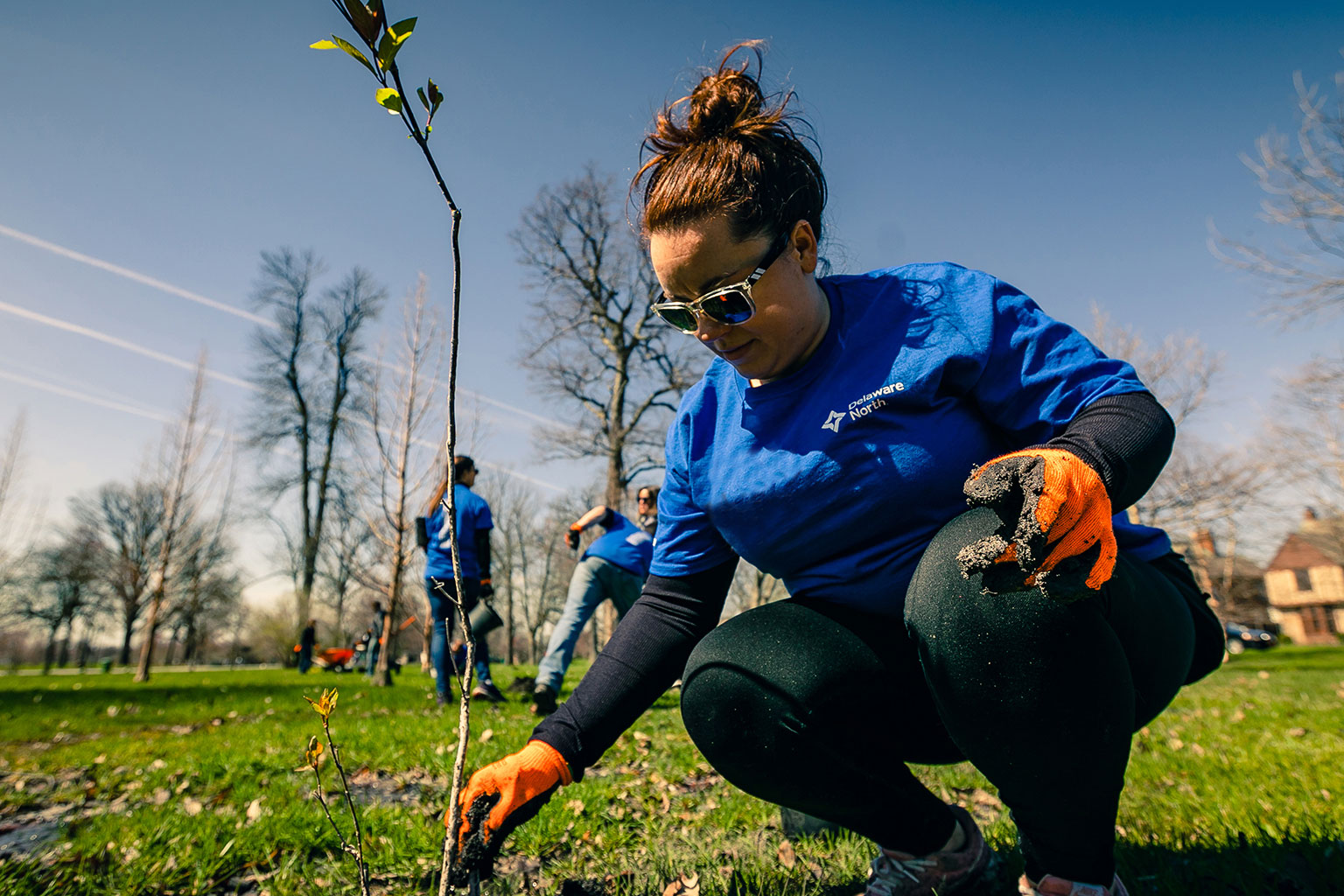Helping Pollinators (A Buzzworthy Mission)
As a global leader in hospitality and entertainment, the team at Delaware North prioritizes great-tasting and sustainable food and drinks. In celebration of Earth Month and World Bee Day, we’re partnering with The Bee Cause Project as too many don’t realize the significant role that pollinators like bees play in the environment – and on our plates.
Bees tend to get a bad rap, but honeybees are quite gentle. They just want to do their thing, helping to pollinate plants. Thanks to bees, we have apples, blueberries, oranges, almonds, strawberries, coffee, chocolate and blue Weber agave, the main ingredient in tequila.
It’s easy to understand how much our food chain depends on these insects. Very quietly — beyond the buzzing — they help create the food supply that sustains modern life. That’s why bees are worth protecting.
But how well do you know honeybees? When you visit one of more than 100 Delaware North locations this month, you can order a delicious, pollinator-themed cocktail and explore an interactive augmented reality experience to learn about the role bees play in tequila production.
Bee a Friend to Pollinators
Per The Bee Cause Project, here are some ways you can support pollinators.
Bees need water to heat and cool their hive
You can help bees by putting out a shallow dish with fresh water and pebbles for bees to land on. Bees can’t swim so be sure to place a few stones in your water source to help bees and other pollinators climb out. And add fresh water daily.
Bees need food
Bees and other pollinators eat nectar and pollen, which comes from flowers. Nectar is a sugary, energy-boosting food source. It’s what honeybees use to make honey.
- Grow a pollinator garden with plenty of flowers. Many pollinators visit the same type of flower when they forage for food. Plant flowers in groups rather than separately. This helps pollinators save their energy by putting all the food they need in one “bee buffet.”
Bees need habitats
Pollinators need safe places to rest and raise their young. Honeybees live together in beehives while native bees, butterflies and beetles live alone. Dead plant stems, leaves, twigs, mulch and even a pile of sticks can become shelter in a storm.
- Investigate how to build a pollinator house or bee hotel to add shelter to your landscape. Check out The Bee Cause Project for more information.
- Create a No Mow Area to allow an area of your yard to grow naturally, especially during the dandelion and clover season.
About The Bee Cause Project
The Bee Cause Project inspires the next generation of environmental stewards while protecting our planet’s pollinators. The Bee Cause offers a variety of grants to schools and non-profit organizations across North America, Canada, and beyond. Through Honeybee Grants, Pollinator Literacy Grants and Pollinator Habitat Grants, The Bee Cause strengthens the connection their participants share with pollinators and enables curious minds to thrive. All grants include equipment and resources, providing a STEAM-based curriculum that brings the natural world into the classroom.
Learn more about our friends at The Bee Cause Project and their mission to protect pollinators.
About PATRÓN Tequila
At PATRÓN, sustainability is a key fundamental principle and a way they have always strived to bring the brand forward with the world. The following are examples of PATRÓN Tequila’s recent sustainability measures:
- PATRÓN developed a state-of-the-art water treatment system to reclaim clean water from its tequila production. That water is then reused in cooling towers and for cleaning.
- PATRÓN installed a natural gas pipeline as a main energy source, which helps reduce CO2 emissions.
- PATRÓN reforested and donated approximately 16,000 trees in the local community of Atotonilco el Alto, Jalisco.
- The PATRÓN compost center creates about 5,500 tons of fertilizer compost a year from leftover agave fibers.
- PATRÓN takes in used agave fibers from neighboring distilleries and turns their agave fibers into fertilizer for them to use.
- PATRÓN not only has a commitment to crafting the world’s finest tequila, but it’s just as dedicated to taking care of the resources and people that make it possible. The PATRÓN Jimadors only harvest mature agave to allow the natural reproduction cycle of the plant to occur, helping prevent over planting and playing an important role in preserving the local ecosystem.
Learn more about PATRÓN Tequila’s social and environmental responsibility.
